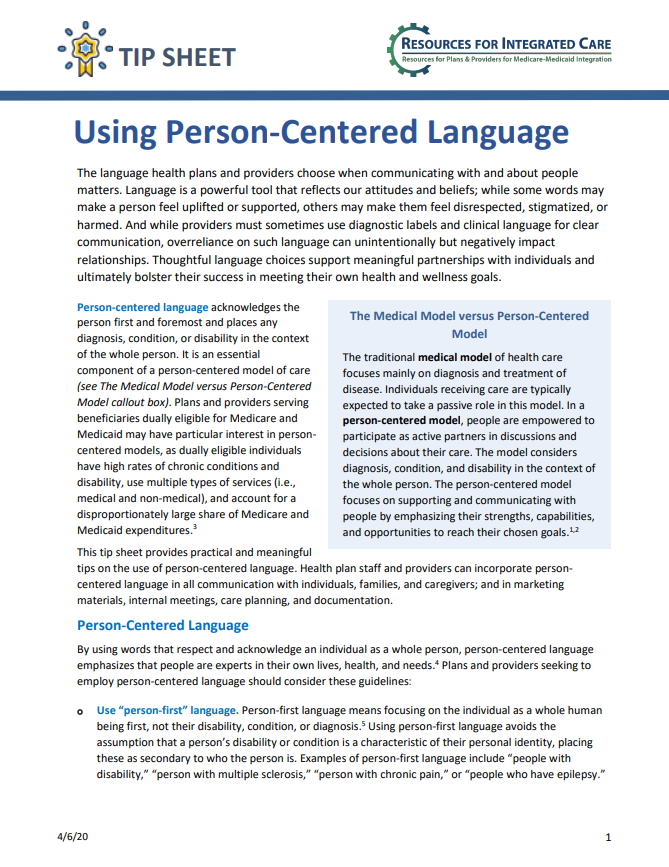Headline
This tip sheet provides guidelines for how health plans and provider organizations can use more person-centered language.
Context
Person-centered language offers an alternative to language commonly used within health care that tends to rely on shorthand terminology and focus on medical diagnoses and treatment in ways that can be insensitive to the lived experiences of those receiving care. By using language that places health needs within the context of a whole person, providers and other health care professionals can more effectively cultivate the relationships and communication needed to deliver effective care. Person-centered language is especially important when engaging with dually eligible individuals and others with complex health and social needs. Additionally, fostering trust and communication through person-centered language use can enable patient-provider relationships more conducive to health equity.
Findings
This tip sheet serves as a practical guide to using person-centered language in health care. It includes guidelines related to language choice, asking individuals for their language preferences, describing patients, strength-based language, and avoiding stereotypes. The tip sheet also includes a table with frequently used terms and phrases and their person-centered alternatives. It also offers two case examples of person-centered language featuring dually eligible beneficiaries.
Takeaways
Health care organizations can look to this tip sheet as a starting point in implementing person-centered language. Critically, person-centered language is most effective when implemented alongside broader person-centered care models. For example, longer appointment times may help providers better implement person-centered language in their practice, by allowing more time to get to know patients and understand their communication preferences. To learn more about how person-centered language can be implemented, readers may also see Resources for Integrated Care’s recent publication, Leveraging Person-Centered Language to Deliver Person-Centered Care: Spotlight on Commonwealth Care Alliance.

